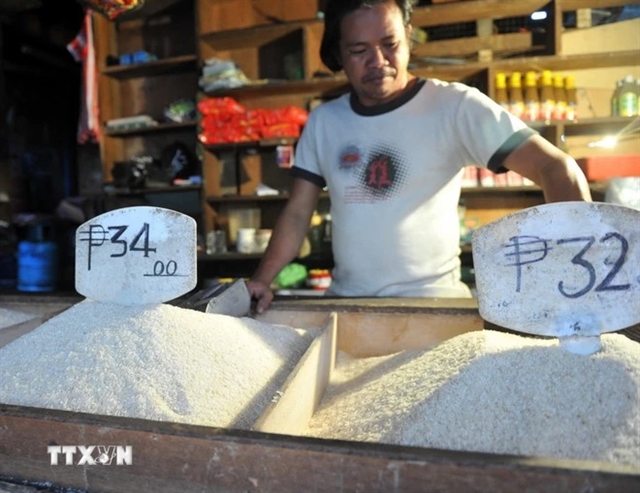 Economy
Economy

 |
| Vietnamese rice for sale at a store in Manila, the Philippines. VNA/VNS Photo |
HÀ NỘI The Philippines, one of the world's largest rice buyers and largest customers of Vietnamese rice, announced a reduction in import taxes from 35 per cent to 15 per cent, effective immediately until 2028.
According to statistics from the General Department of Vietnam Customs, during the first four months of 2024, the Philippines imported over 1.489 million tonnes of Vietnamese rice, worth nearly US$936 million.
That makes the Philippines Việt Nam's largest buyer to date and represents a 15.9 per cent increase in volume and a 44.7 per cent increase in value over the same period last year.
Local news outlet philstar.com reported the Philippines imported a total of 2,086 million tonnes of rice during the period.
Food prices have been on the rise in the Philippines in recent months and the President Ferdinand Marcos Jr. approved a tariff cut for 2024-28 in an attempt to rein in inflation and give households easier access to affordable food.
Phạm Thái Bình, chairman of Trung An Hi-tech Farming JSC. said the cut in the tariff could bring down the cost of imported rice and may encourage Filipino importers to increase volumes.
According to Bình, average prices of Vietnamese rice to the Philippines could go down significantly, from $810 per tonne to $690 per tonne after the tariff cut, for importers.
Nguyễn Thanh Phong, director of rice trading Văn Lợi Company said the tariff cut would bring down costs for Filipino buyers, likely boosting imports and profiting exporters.
He said with the new tariff, sellers can slightly raise prices without affecting buyers' bottom line significantly.
Bình said over the short term wholesale rice prices could rise to $620-630 per tonne instead of the current price of $600 per tonne, while feeding through to bring down retail prices for consumers. VNS




